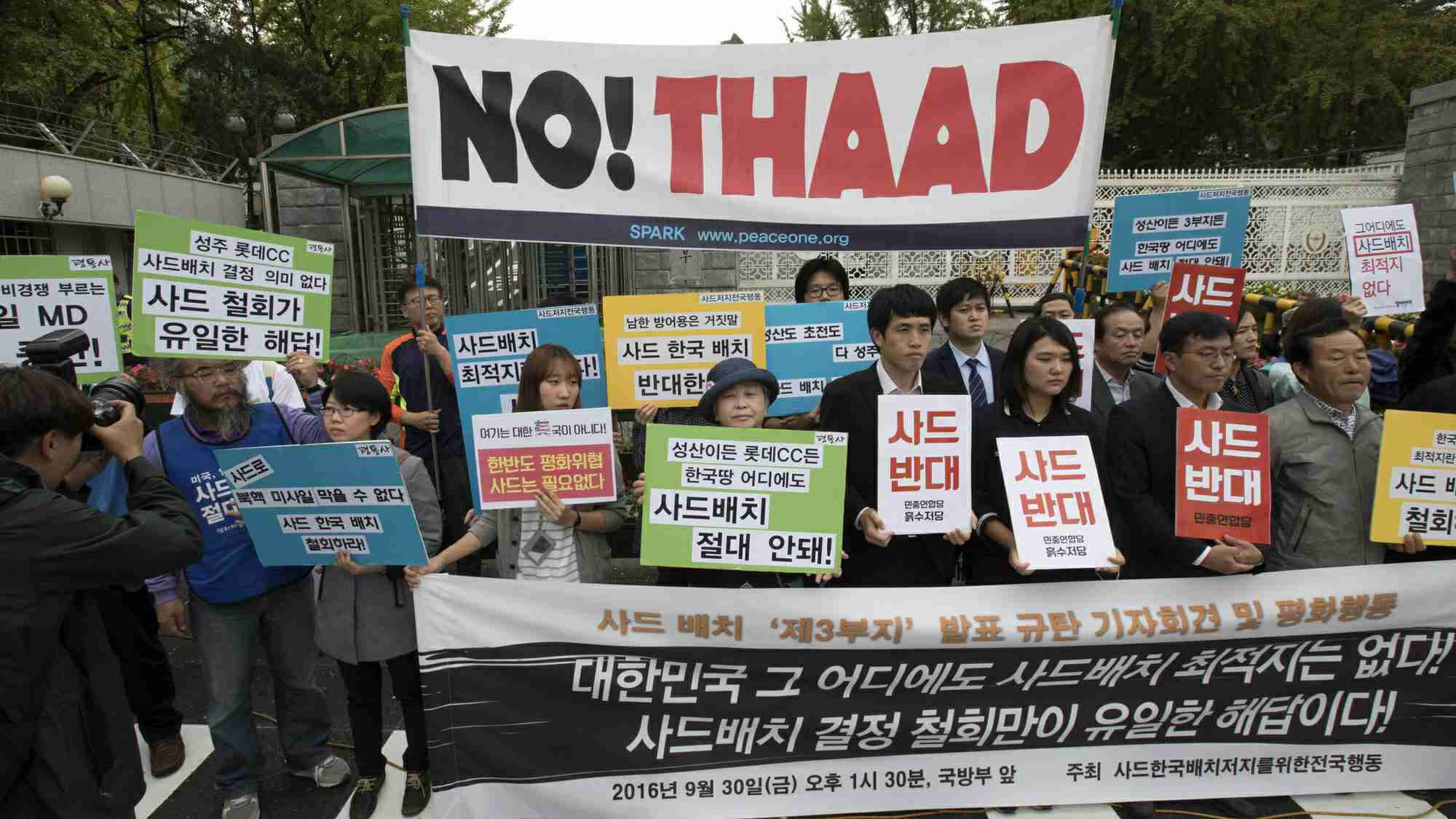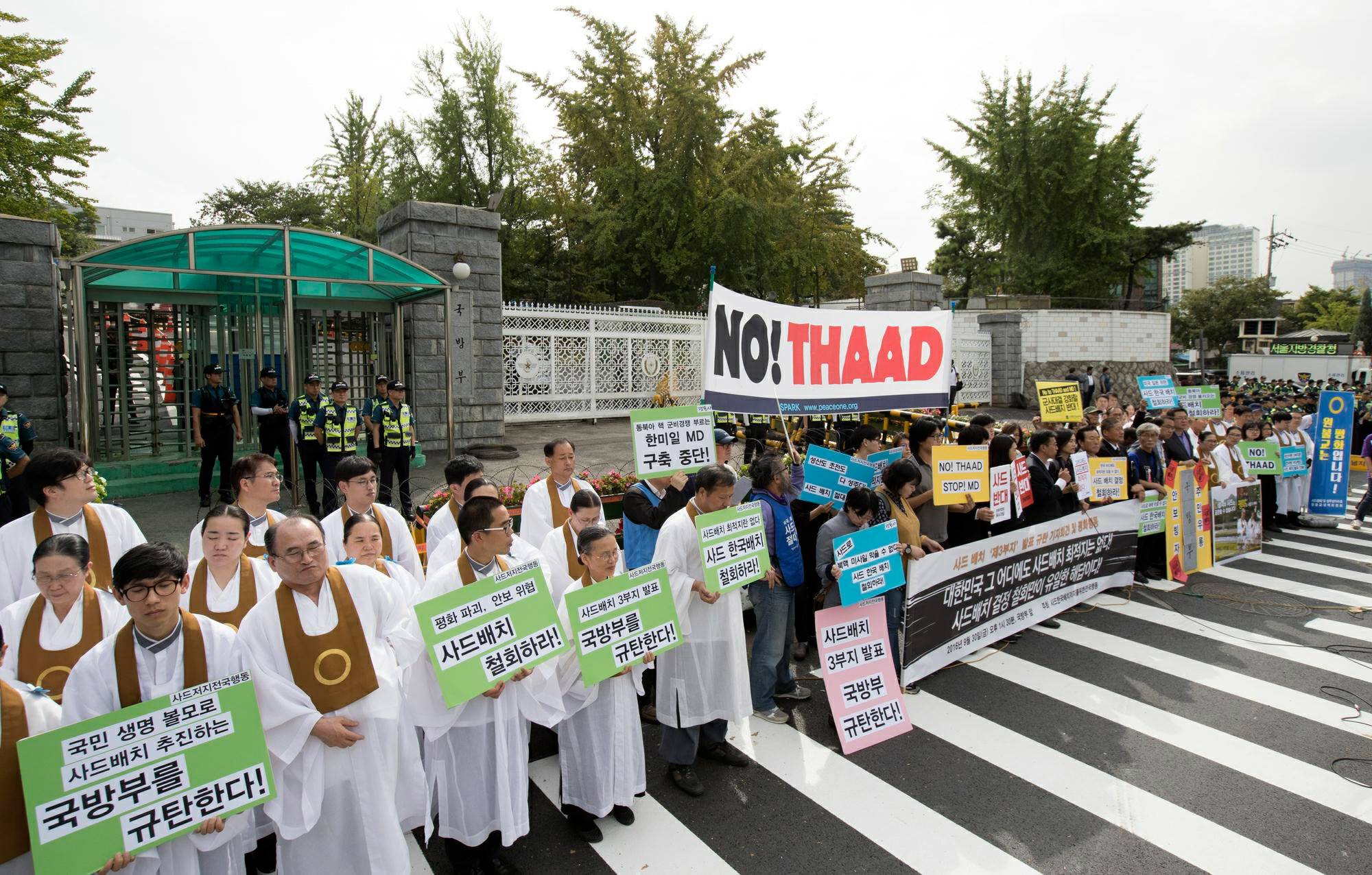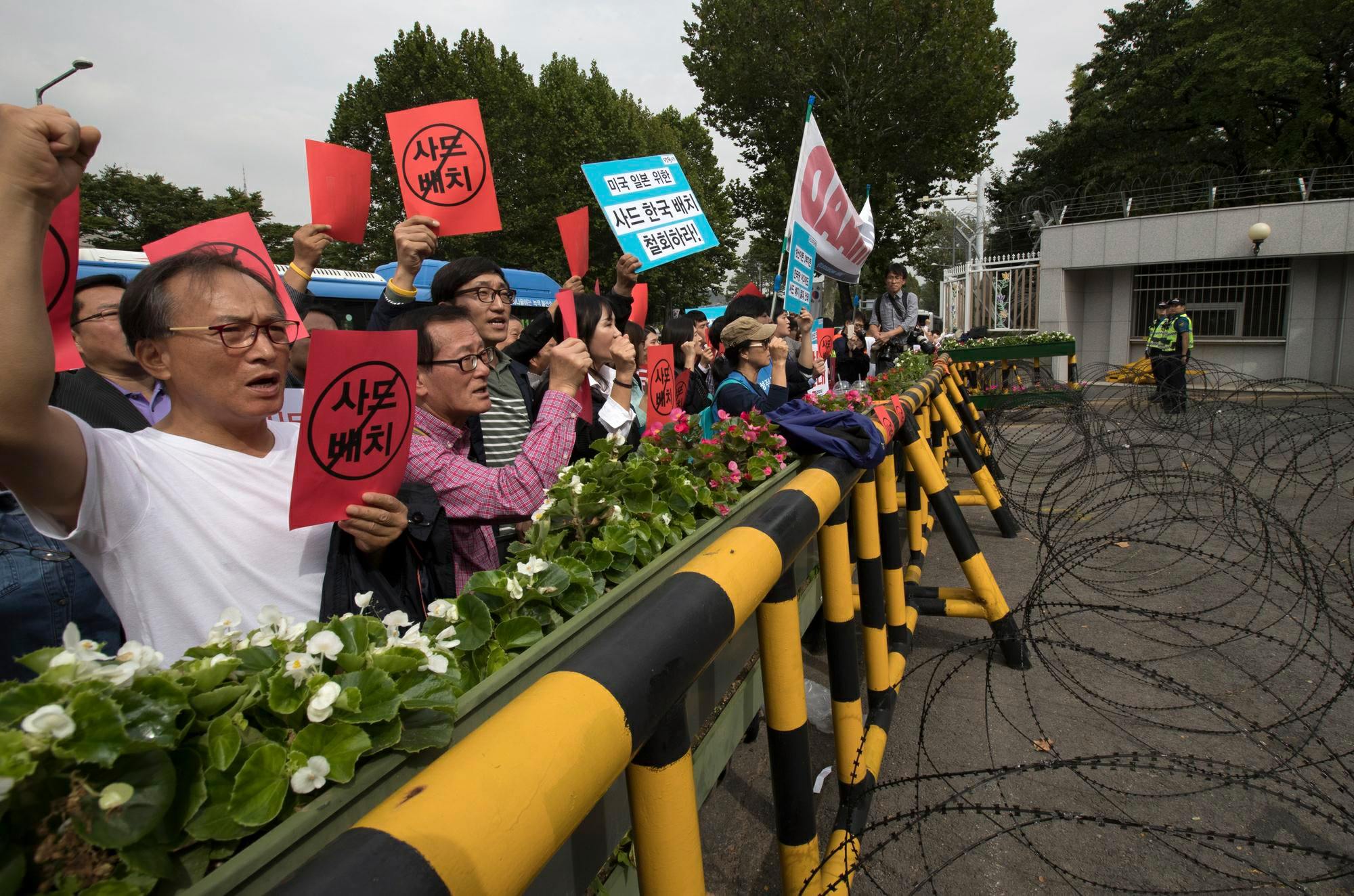
Politics
17:22, 09-Jan-2017
Analysis: Could S. Korean president’s exit mean the end for THAAD deployment?
Updated
10:32, 28-Jun-2018

Guest commentary by Shastri Ramachandaran
As the impeachment trial of South Korean President Park Geun-hye over a corruption scandal began on January 5, international commentators began to ask what will be the political consequences of her exit, and more specifically what it will mean for the deployment of the controversial missile system THAAD (Terminal High Altitude Area Defense).
Park’s powers as president were suspended by the National Assembly, which voted on December 9 to impeach her. This followed months of protests by millions of Koreans seeking to oust her for allegedly extorting money and favors from companies in collusion with her confidante, Choi Soon-sil, for the latter’s foundations. The protesters were also angry at Park for supposedly allowing her confidante and friend to illegally interfere in state affairs.

Residents from Seoul protest against the government's decision on deploying a US THAAD anti-missile defense unit in Seongjul, South Korea, September 30, 2016. /CFP Photo
Residents from Seoul protest against the government's decision on deploying a US THAAD anti-missile defense unit in Seongjul, South Korea, September 30, 2016. /CFP Photo
Since the impeachment, Park’s powers and duties have been assumed by Prime Minister Hwang Kyo-ahn, who is acting president.
Park’s trial by a nine-judge court, which may take six months to complete, will decide whether she should be restored to or removed from office. She did not come to testify at her trial on the opening day and at the time of writing has still not attended the hearings. Instead, it has been left to her lawyers to argue against accusations of violating the constitution and laws. Since the court cannot compel Park to be present at the hearings, the trial can continue without her.
It is a foregone conclusion that Park’s presidency is over. With a sizeable section of her ruling party’s lawmakers breaking away, there is little chance of her reinstatement as president even if the judges find in her favor. Thus, the impeachment trial verdict, when it comes, may be only of academic interest. It cannot resolve Korea’s political crisis.
The crisis has moved far beyond the problems facing the president and now includes: Who will succeed Park? How will Park’s exit and Donald Trump becoming president affect South Korea’s ties with its long-standing ally, the US? Will the July 2016 agreement to host the THAAD system – claimed to be for shooting down the DPRK’s ballistic missiles - hold amidst the uncertainty over US-South Korea relations under President Trump?

Residents from Seoul protest against the government's decision on deploying a US THAAD anti-missile defense unit in Seongjul, South Korea, September 30, 2016. /CFP Photo
Residents from Seoul protest against the government's decision on deploying a US THAAD anti-missile defense unit in Seongjul, South Korea, September 30, 2016. /CFP Photo
There is great anxiety, if not fear, over the US commitment to defend South Korea against North Korea after Trump takes charge. During his campaign, Trump said that he would consider not defending allies such as South Korea and Japan unless they paid the US much more to do so. He also hinted that Korea (and Japan) might want to consider getting their own nuclear weapons instead of relying on the US.
That apart, South Korea's main opposition parties are against THAAD on the grounds that it offers no effective protection against North Korea, and will worsen relations with China. None of Park's likely successors are rooting for THAAD. One possible future president, former UN Secretary General Ban Ki-moon, enjoys good relations with Beijing and favors a non-confrontational approach to North Korea. Despite rampant speculation Ban has not officially entered the race to become president but like the other possible contenders, he is opposed to THAAD for its negative impact on regional stability.
There is no doubt THAAD’s deployment will be stalled. However, in South Korea’s current crisis and uncertainty over ties with the US, it may be premature to expect that THAAD would be abandoned.
(Shastri Ramachandaran is an independent journalist and global affairs commentator based in New Delhi. He worked as senior editor and writer with China Daily and Global Times and was previously senior consultant and editor of China-India Dialogue. The article reflects the author's opinion, not necessarily the view of CGTN.)
958km

SITEMAP
Copyright © 2018 CGTN. Beijing ICP prepared NO.16065310-3
Copyright © 2018 CGTN. Beijing ICP prepared NO.16065310-3